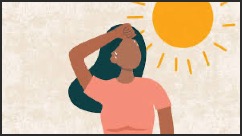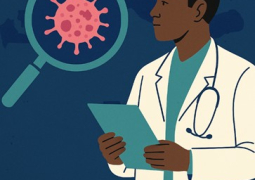
You can have mild, moderate, or severe dehydration . If you are an adult, the seriousness of your dehydration depends on how much fluid your body is missing. In children, dehydration is based on how much body weight they’ve lost due to a lack of fluids.
Mild dehydration: This causes symptoms such as thirst, less peeing and sweating, and dry mouth. Children have mild dehydration when they lose 3%-5% of their body weight due to fluid loss. You can treat mild dehydration at home by drinking water, electrolyte drinks, or oral rehydration solutions you can buy at the drugstore.
Moderate dehydration: The symptoms are similar to those of moderate dehydration but are more intense. In children, it means they’ve lost 6%-10% of their body weight. You’ll need a medical professional to give you fluids through an IV.
Severe dehydration: Symptoms include dizziness, sunken eyes, fainting, rapid breathing, and a racing heart. Children may lose over 10% of their body weight. This type of dehydration requires immediate medical attention. You may be treated with IV fluids containing salt.
Causes of Dehydration
It’s normal to lose water from your body every day by sweating, breathing, peeing, pooping, and through tears and saliva (spit). Usually, you replace the lost liquid by drinking fluids and eating foods that contain water. If you lose too much water or don’t drink and eat enough, you can get dehydrated.
You can lose more water than usual with:
A fever
Diarrhea
Vomiting
Excessive sweating
Peeing a lot (diabetes and some medications such as water pills, also called diuretics, can make you pee more often)
You may not replace the water you lose because:
You’re busy and forget to drink enough.
You don’t realize you’re thirsty.
You don’t feel like drinking because you have a sore throat or mouth sores, or you’re sick to your stomach.
Symptoms of Dehydration
Signs of mild or moderate dehydration include:
Thirst
Dry or sticky mouth
Not peeing very much
Dark yellow pee
Dry, cool skin
Headache
Muscle cramps
Dry cough
Low blood pressure
Loss of appetite or sugar cravings
Flushed skin
Swollen feet
Chills
Constipation
Shriveled skin
Lack of sweating
Signs of severe dehydration include:
Not peeing or having very dark yellow pee
Very dry skin
Feeling dizzy
Rapid heartbeat
Rapid breathing
Sunken eyes
Sleepiness, lack of energy, confusion, or irritability
Fainting
Symptoms for babies and young children can be different than for adults:
Dry mouth and tongue
No tears when crying
Less than six wet diapers a day for infants
No wet diapers or peeing for 8 hours for toddlers
Sunken eyes, cheeks, soft spot on the top of the skull
Sleepiness, lack of energy, or irritability
Dry or wrinkled skin
Deep rapid breathing
Cool blotchy hands and feet
Severe dehydration is a medical emergency and needs to be treated immediately.
Dehydration Risk Factors
Anyone can get dehydrated, but the odds are higher for some people:
Babies and young children are the most likely to have severe diarrhea and vomiting, and they lose the most water from a high fever. The youngest can’t tell you they’re thirsty or get their own drinks.
Older adults often don’t realize they’re thirsty. If they can’t get around very well anymore, they may not be able to get a drink easily or may not be able to take in enough fluids due to medical conditions.
People who are ill with a cold or sore throat may not want to eat or drink.
People with a chronic disease such as type 1 or type 2 diabetes can pee a lot if the disease is uncontrolled. They also may take medicines such as water pills, which make them go more often.
People who are active outside in warm weather,like those who work in jobs such as construction or surveying, sometimes can’t cool down effectively because their sweat doesn’t evaporate. This can lead to a higher body temperature and a need for more fluids.
People in high altitudes 8,000 or more feet above sea level. High-altitude areas tend to have drier air with a lower oxygen content. This can make you breathe harder and faster, causing you to lose more water than usual.
Effects of Dehydration
Dehydration may lead to complications if you don’t drink enough fluids or take too much too quickly.
Complications result when your vital organs stop working well due to low blood flow or your kidneys try to hold onto fluid. Some of them include:
Heat exhaustion or heatstroke
Seizures
Kidney failure
Coma
Shock
Brain swelling
Low blood volume shock, in which your blood pressure and the amount of oxygen in your blood are too low
If it’s not treated, dehydration can be deadly.
If you drink too much fluid to try to hydrate yourself, you could end up with swelling in the limbs (peripheral edema) and fluid buildup in the lungs (pulmonary edema).
If you become dehydrated while pregnant, you can face serious health problems such as too little amniotic fluid, premature labor, and a lack of breast milk. It could lead to neural tube defects in your developing baby and result in them being born with disabilities.
Dehydration Treatment
Staying hydrated is as important to your health as eating, exercising, and sleeping well. It’s especially important at times when you’re more likely to lose fluids or when you need more fluid than usual, such as during an illness, pregnancy, or exercise.
Here’s how you can help yourself stay hydrated by drinking as much water as your body needs:
Always take a water bottle wherever you go and refill it as needed. For cold refreshing drinks, keep freezer-safe water bottles in the freezer overnight and carry them during the day.
Drink water before each meal.
Add a slice of lime or lemon to flavor your water, making it more enjoyable to drink.
Reach for water instead of sugary, alcohol, and caffeinated drinks to quench your thirst.
If you tend to forget to drink enough water, setting reminders on your phone to take water can be helpful.
Listen to your body and drink water as soon as you feel thirsty.
Start a “drink water” challenge alone or with loved ones to motivate you to drink enough water.
Add more water-rich foods such as vegetables, fruits, and soups into your diet.
Takeaways
Dehydration can cause you to feel out of sorts and tired. And when it lasts a long time, it can cause serious health problems. You can avoid it by regularly drinking water and other fluids and eating foods with high water content. You can treat mild dehydration by replacing lost fluids with water or oral rehydration solutions. But you’ll need to see a doctor for moderate or severe dehydration.
Dehydration FAQs
What are the five symptoms of dehydration?
Five common symptoms of dehydration include tiredness, dry skin and lips, thirst, dark pee, and not peeing as often.
How do you tell if you are dehydrated?
You can tell you are dehydrated if you are feeling thirsty, tired, peeing less, or showing signs such as muscle cramps, dizziness, headache, or unsteadiness.
What is the fastest way to cure dehydration?
The fastest way to cure mild dehydration is by drinking water, electrolyte drinks, or oral rehydration solutions as soon as you notice signs of dehydration. See a doctor if you have signs of moderate to severe dehydration.
What are the effects of dehydration?
Mild dehydration shouldn’t have lasting effects. Serious dehydration can cause changes in your mental function, kidney failure, low blood pressure, and more.
Source : WebMD
Read Other Articles In Health





